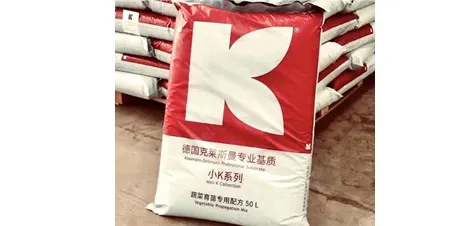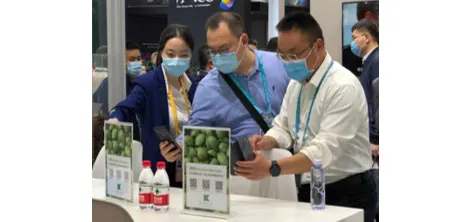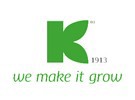While the demand for high-quality horticultural substrates has never been greater, growers are increasingly interested in locally sourced and ecofriendly products. Klasmann-Deilmann China is striving to meet those needs among Chinese growers by developing substrates with locally sourced materials, such as rice husks and green residues from the country’s massive agricultural sector.
Locally-minded horticultural substrates
Since its establishment in 1913, German substrate producer Klasmann-Deilmann has expanded its sales capacity to reach 100+ countries across five continents. Similar to the development of the car industry, Klasmann-Deilmann typically operated on an export model and produced its substrates in Europe (in proximity to the vast supplies of sphagnum peat moss), then exported the substrates all over world. In recent years, however, the company has raised its gaze from peat and is looking towards localized production projects (i.e. closer to clients) and the use of locally available resources. More specifically, Klasmann-Deilmann has been working extensively with Chinese growers and substrate producers to develop locally-minded horticultural substrates.
Klasmann-Deilmann has been active in China since 1999, having first visited the country to study the market needs. According to Kelvin Tan, managing director of Klasmann-Deilmann China, “Klasmann-Deilmann China was established in 2014 to further strengthen our foray into the Asian market with our own technical advisory team and sales team to develop new segments. Our goal is to become the most professional substrate producer/supplier to the horticulture industry.”
Most effective when close to the targeted market
The establishment of Klasmann-Deilmann China was rooted in the parent company’s belief that a company is most effective when close to the targeted market. “Being closer means that you’re constantly aware of local changes and customer needs. In order to prioritize the customer, you need to be close to the customer,” says Kelvin.
When comparing the European and Asian substrate markets, Kelvin explained that it’s the raw materials that make the difference. “The European market is peat-based, with substrates made mostly of sphagnum peat moss with a maximum replacement of 20-30% by wood fibres, coir or rice husks at present. In China, rice husks are widely available as are perlite, coconut husks and green waste.” With a huge demand for products that aren’t 100% imported, Klasmann-Deilmann China has adapted to begin with organic materials available in China, supplement with imported products as needed and use the company’s technology to produce premium products.
In 2019, Klasmann-Deilmann China partnered with a local substrate producer to create substrate recipes for vegetable, strawberry and tobacco production using local organic material. To develop these products, the company had conducted extensive research into the stability and safety of local materials, reliability of their supply and appropriate mixing ratios. “We have been exploring localized production projects in China to produce professional substrates incorporating locally sourced raw materials. These products have been well-received by the growers and represent our company’s strategic goal to reduce the use of peat in substrates,” says Kelvin.
 Klasmann-Deilmann substrate made in China
Klasmann-Deilmann substrate made in China

Visitors keen to know and learn about the core technology at CIIE 2020
Recently, Klasmann-Deilmann China was invited to the 3rd China International Import Expo (CIIE), an event which was held on November 5-10, 2020. As the only agriculture/horticulture-related company at the trade show, Klasmann-Deilmann China received a warm response from various mayors and officials who have struggled to find local companies that process organic material and were excited to hear that there is indeed a company processing green residues into usable material. “We received more than 3000 visitors to our stand during the 6-day event” says Kelvin, “and have established connections with important governmental officials of various provinces/cities to explore the opportunities for collaboration and meet their demands.”
For more information:
Klasmann-Deilmann
Klasmann Deilmann Benelux
Nieuwe Waterwegstraat 34
3115 HE Schiedam
Netherlands
www.klasmann-deilmann.com
